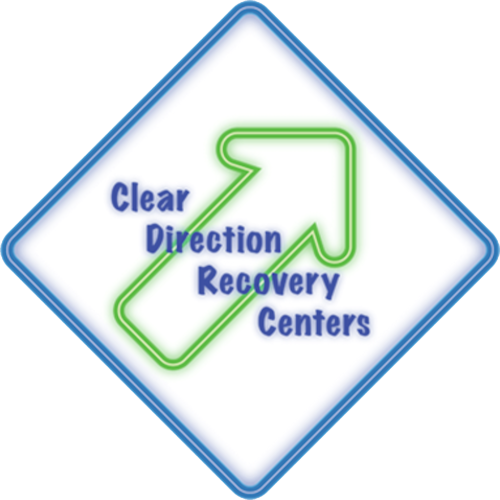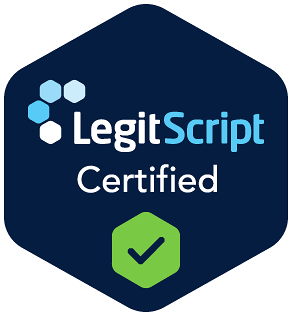Dual Diagnosis Treatment Program in New Jersey
Clear Direction Recovery Center in New Jersey, provides a dual diagnosis treatment program for individuals dealing with both addiction and mental health conditions. The program takes an integrated approach, addressing both issues simultaneously. This method enhances outcomes, accelerates recovery, and enables individuals to develop practical tools for long-term stability and progress.

A dual diagnosis program supports people experiencing both addiction and mental health challenges. These challenges often feed into each other, creating a cycle that’s hard to escape alone. This type of program focuses on recovery for those managing emotional struggles alongside addiction.
Someone with depression might turn to alcohol for relief, while substance use can deepen depressive symptoms. Treating only one issue leaves the other unaddressed, which often leads to setbacks. A dual diagnosis program treats both challenges in a connected and coordinated way.
Trained professionals create plans that fit each person’s unique needs. These may include different therapies, medical treatment, and learning healthier coping strategies. By tackling both together, people gain stronger tools for recovery. The goal isn’t just stopping substance use, but also improving emotional health. An integrated program strengthens recovery by reducing the risk of relapse and promoting steadier progress. With the right combination of mental health care and addiction therapy, individuals can find a clearer path forward and long-term healing from overlapping struggles.
Contact Clear Direction Today!
Why Wait? Find The Help You Need By Reaching Out To Us Today! Our Admissions Team Is Standing By.
What Are Symptoms Of Mental Health Disorders And Co-Occurring Addiction?
Mental health disorders and addiction can create a wide range of symptoms. When both conditions occur together, the signs often overlap and become harder to separate. Some common symptoms include:
- Persistent sadness, hopelessness, or loss of interest in daily activities
- Racing thoughts, constant worry, or physical tension linked to anxiety
- Extreme mood swings that disrupt routines or relationships
- Hallucinations, confusion, or disorganized thinking connected to schizophrenia
- Strong cravings for drugs or alcohol and loss of control over use
- Withdrawal symptoms when trying to cut back or stop substance use
- Using substances to ease distress, which often worsens mental health afterward, temporarily
- Confusion about which condition is causing which symptoms
Dual diagnosis programs examine the whole picture, helping individuals find clarity and receive treatment that addresses both aspects simultaneously.
How Common Are Co-Occurring Disorders?

Co-occurring disorders are more widespread than many expect. Millions of adults in the United States live with both conditions. SAMHSA reports that about one in four adults with a serious mental illness also struggles with a substance use disorder.
Rates are even higher among younger adults, who face unique stressors and risks. These conditions often develop together rather than separately. Trauma, genetics, or stressful life events can increase the likelihood of both. Unfortunately, many people don’t receive treatment for years. Some get help for one issue, while the other remains hidden. This gap makes recovery more challenging and exacerbates suffering.
Symptoms can also be mistaken for something else. Careful evaluation is important to avoid misdiagnosis. With the right support, people can finally understand what’s happening.
What Are The Benefits Of Dual Diagnosis Treatment?
Dual diagnosis treatment offers numerous benefits that enhance the effectiveness and sustainability of recovery. By treating both mental health and substance use together, people gain stronger tools for healing. Some key benefits include:
- Treating both conditions at once, preventing one from fueling the other
- Gaining insight into how mental health and substance use connect
- Learning coping strategies through effective therapy
- Using medications to stabilize mood or reduce cravings
- Lowering relapse risk by addressing both challenges together
- Focusing on whole-person healing, including sleep, routines, and relationships
- Creating connections in group sessions with peers who share similar experiences
- Developing resilience and confidence for long-term stability
Therapies and Medications Used in Dual Diagnosis Programs in New Jersey
Dual diagnosis programs use a mix of therapies and medication-assisted treatments to support healing. Cognitive Behavioral Therapy (CBT) helps people recognize and change harmful thought patterns. DBT provides practical tools for regulating emotions and reducing stress in daily life.
Group therapy allows people to share experiences and learn from one another. Family therapy helps repair relationships affected by addiction and mental illness. Medications may also play a key role. Antidepressants can lift mood, while anti-anxiety drugs may ease constant worry.
For addiction, medications like buprenorphine or naltrexone can reduce cravings and withdrawal symptoms. These tools work best when combined. Treatment teams in New Jersey adjust approaches based on each person’s response. Regular monitoring ensures medications are safe and effective. Together, therapy and medication create a balanced, personalized plan.
What Are The Dangers Of Self-Medication?
Many people with mental health struggles turn to substances as a form of self-medication. Someone with anxiety may drink to feel calm. A person with depression may use drugs to escape sadness. While this may bring temporary relief, it usually makes things worse.
Substances disrupt brain chemistry, deepening emotional struggles over time. Alcohol abuse may worsen hopelessness, while stimulants can increase paranoia or panic. Self-medication also raises the risk of dependency and overdose. What starts as a coping tool can quickly become another problem. The cycle becomes exhausting: using substances to manage symptoms, then suffering from worsening health.
Breaking free without help is very difficult. Dual diagnosis treatment and alcohol rehab provide individuals with safer and healthier ways to cope. With guidance, people can replace harmful habits with effective strategies.
Is Dual Diagnosis Treatment Right For Me?
You might wonder if a dual diagnosis program is the right path for you. It may be if you struggle with both mental health challenges and substance use. Signs include using substances to manage emotions or noticing that drugs worsen your mood. You may also feel trapped in a cycle you cannot break on your own.
If you’ve tried treatment before but relapsed, a dual diagnosis program might offer the missing piece. These programs focus on the bigger picture, not just one condition. They provide tools for both emotional balance and sobriety. Plans are personalized, making them flexible for individual needs. If you feel overwhelmed, talking to a professional can bring clarity. Together, you can explore whether this type of program is the right fit.
Clear Direction Recovery Centers Offers A Dual Diagnosis Treatment Program

Clear Direction Recovery Centers in New Jersey provides compassionate treatment for people living with both mental health and addiction challenges. Our program combines therapy, medication, and education in a personalized plan. Many people wonder if insurance covers dual diagnosis treatment.
The encouraging news is that most insurance plans include behavioral health benefits. These benefits often extend to dual diagnosis programs. Coverage varies by provider and policy details. Some plans may cover nearly all costs, while others cover part of them. Checking with your insurance company helps clarify what’s included.
Clear Direction Recovery Centers can also help by verifying your coverage and explaining financial options. Cost should not prevent someone from getting help. If you or a loved one needs support, reaching out is the first step. Contact us today to learn more about programs and insurance options. Healing starts when you make that call.

